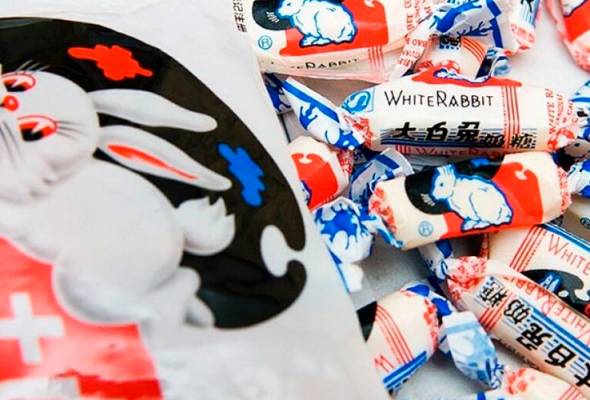By Faranaz Fatini Binti Zaharan
Instinctual behaviour which exists in all business organizations has created a grapevine communication effect which is known to be the agent of spreading unwanted rumours in the form of a mix of truth and untruth information. According to Fine and Ellis (2013), rumours are defined as the expression of belief towards a certain event that is about to happen and has happened. It does somewhat evoke impactful means towards business organization in either a positive or negative way.
The issue regarding the White Rabbit candy halal speculation that went viral in the early 2019 had caught the attention of the public in Malaysia, Singapore and Brunei after the Americans introduced a White Rabbit candy flavoured ice-cream (May, 2019). In the Malaysian perspective, the issue was being discussed in respect to the halal status of this candy flavoured ice-cream as its candy product (i.e. White Rabbit candy) was also known to be one of Malaysian favourite childhood candies (Jayne, 2019).
The issue of the said discussion stemmed from the Malaysian public’s concern and doubt of the validity of the halal certification of the White Rabbit candy product. The government of Malaysia has also launched an investigation on this issue of concern after the Brunei’s Ministry of Religious Affairs (MoRA) has confirmed that the White Rabbit candy contains unwanted substance that are known to be haram (Astro Gempak, 2019). Originally, this candy was from Shanghai, China is known to be an iconic or essential sweet brand in China and also some other overseas countries, nearly eight decades since the year 1940s (Roxburgh, 2018). It was known to the general public consuming the sweets as the “Mickey Mouse sweets” as, apparently, on its wrappers an iconic Disney character was being displayed (Jayne, 2019).
The deputy minister in the Prime Minister’s Department, Fuiziah Salleh has released a statement in TV Al Hijrah announcing that the White Rabbit candy is certified as Haram (Nazari, 2019). The ministry has officially confirmed that the product contains both pork and cow protein through the investigation conducted by the Department of Islamic Development Malaysia (JAKIM) (Liew, 2019). The result of the investigation has brought sadness to not only the Muslim communities of Malaysia but also the Muslim communities of Brunei and Singapore as it has brought nostalgic memories of the candy itself. In an Instagram post posted by Rumah Gelato Frozen Treats (n.d.), the post has displayed grief in which it illustrated a White Rabbit wagon with parting goodbyes captions depicting the company has joined the bandwagon of the American White Rabbit flavoured ice cream of not selling its White Rabbit gelato ice cream product due to the negative viral issue concerning the American White Rabbit flavoured ice cream. Furthermore, similar post also made by Project Ice Cream (n.d.) through the medium of Instagram with a caption of immediate action to discontinue the White Rabbit ice cream production. This could provide the evidence on how food companies, especially the ice cream companies, had taken action in pulling the flavour of the White Rabbit in the market as a respect and acknowledgement to the sensitivities of the Muslims communities.
It could be seen that, the Muslim communities in Malaysia, Singapore and Brunei had used the platform of social media to sustain a regular and consistent flow of communication to the general public regarding the controversial issue of the halal status. This also connotes that the public and the countries’ respective Islamic organizations or authorities have shown interest in taking serious actions regarding this issue. The issue has brought the people together in knowing the brand better whilst at the same time taking precaution by carrying out research on product ingredients or contents prior to consumption (i.e. on any other similar products being introduced to the market). It has also brought the awareness that not all candies are certified halal and a research of ingredient content is needed to be made.

References:
Astro Gempak. (2019, September 13). Sah! Tidak halal, gula-gula White Rabbit ada gelatin babi. Astro Awani. Retrieved from http://www.astroawani.com/gaya-hidup/sah-tidak-halal-gula-gula-white-rabbit-ada-gelatin-babi-217431
Fine, G. A., & Ellis, B. (2013). The global grapevine: Why rumors of terrorism, immigration, and trade matter. Oxford University Press.
Jayne, T. (2019, February 27). The iconic White Rabbit candy was once taken off the shelf. Here’s why. SAYS. Retrieved from https://says.com/my/lifestyle/the-iconic-white-rabbit-candy-was-once-taken-off-the-shelf-here-s-why
Liew, E. (2019, September 12). White Rabbit Candy Officially NOT Halal, Contains Pig & Cow DNA. World of Buzz. Retrieved from https://www.worldofbuzz.com/white-rabbit-candy-officially-not-halal-contains-pig-cow-dna/
May, A. (2019). After lab test, White Rabbit candy found to be non-halal.Retrieved from https://hype.my/2019/167808/after-lab-test-white-rabbit-candy-found-to-be-non-halal/
Nazari, T. (2019, September 12). White Rabbit candy IS NOT halal; contains pig and cow DNA. The Rakyat Post. Retrieved from https://www.therakyatpost.com/2019/09/12/white-rabbit-candy-is-not-halal-contains-pig-and-cow-dna/?fbclid=IwAR0Z4hS_qEHpRxLKTeRAkaznetA-q0aHpBlJPuZRcXdB_t6-5XMp1wmf8gY
Project Ice Cream [@projecticecream.bn]. (n.d.). Posts [Instagram profile]. Retrieved May 12, 2019, from https://instagram.com/projecticecream.bn?igshid+1cnyq2ja5yfqn
Roxburgh, H. (2018, April 30). How China’s iconic White Rabbit sweets went from a Shanghai favourite to being known the world over. The Star. Retrieved from https://www.thestar.com.my/news/regional/2018/05/01/how-chinas-iconic-white-rabbit-sweets-went-from-a-shanghai-favourite-to-being-known-the-world-over RumahGelato Frozen Treats [@rumahgelato]. (n.d.). Posts [Instagram profile]. Retrieved May 17, 2019, from http://instagram.com/rumahgelato?igshid+atqfrs243jvo